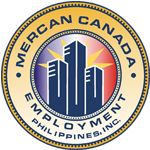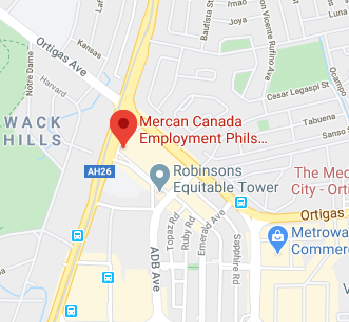Temporary residents: Maintained status during processing (previously called implied status)
In the Immigration and Refugee Protection Act (IRPA) and the Immigration and Refugee Protection Regulations (IRPR), status and authorization are not linked as was the case in the previous Immigration Act (1976). Under IRPA, all foreign nationals authorized to enter Canada as per subsection A22(1) have temporary resident status. A temporary resident may also be authorized to work without a permit [R186], be issued a work permit [R200 or R201], be authorized to study without a permit [R189] or be issued a study permit [R216 or R217].
All temporary residents have an automatically imposed condition that they must leave Canada at the end of their authorized period of stay. However, as per section R181, a temporary resident may apply to extend their period of authorized stay before it ends. If they have done so, their period of authorized stay as a temporary resident is extended by law until a decision is made [R183(5)]. Such a person is considered to have legal status as a temporary resident during the processing period.
Important: Holders of temporary resident permits (TRPs) are considered to be in the temporary resident class; however, when a foreign national applies for a new TRP, they are not renewing under section R181 but applying for a subsequent TRP as per section A24. Therefore, they do not maintain their temporary resident status during the processing period as they do not meet the requirements of subsection R183(5). For more information, consult Temporary resident permits (TRPs): Subsequent permits.
On this page:
- Date and time of receipt of application
- Travel outside Canada
- Effect of decision on period of authorized stay
- Second application during processing period
Date and time of receipt of application
The date and time of receipt are important for determining if status is maintained under subsection R183(5). For electronic applications, the department uses Coordinated Universal Time (UTC) around the world to ensure that time is equal for all. Therefore, receipt dates and times do not depend on time zones; all applications must be submitted before midnight UTC on the date the applicant’s status expires. If the application was received after midnight UTC on the date of expiry, the applicant does not maintain their status under subsection R183(5).
The date received for paper applications is the date physically received and stamped at the Case Processing Centre. However, if the date physically received is after the expiry date of the applicant’s status, the officer will backdate the received date by 7 days to account for any mail delivery delays.
If a temporary resident also applies for renewal of their work or study permit before the expiry of their existing permit and their permit expires before a decision is made, paragraph R186(u) or section R189 authorizes them to work or study without a permit under the same conditions pending a determination of their application for renewal and only as long as the person remains in Canada.
Note: All in-Canada visitor extension, study permit and work permit applications must be submitted electronically, with some exceptions. See the list of programs that are exempt from the in-Canada mandatory electronic application requirement.
Travel outside Canada
A temporary resident whose period of authorized stay has been extended as per subsection R183(5) who leaves Canada will be examined on re-entry and may be allowed to
- re-enter Canada as a temporary resident pending a decision on the extension of their study permit or work permit in Canada
- apply for a new work or study permit at the port of entry, if eligible
Re-enter Canada as a temporary resident
Applicants may be allowed to re-enter Canada as a temporary resident pending a decision on the extension of their study permit or work permit in Canada, provided they are temporary resident visa (TRV) exempt as per section R190 or hold a valid multiple-entry visa. The border services officer will set the period of authorized stay on entry.
Temporary residents from TRV-required countries whose period of authorized stay has been extended under subsection R183(5) and who are seeking re-entry to Canada following a visit solely to the United States or St. Pierre and Miquelon are considered to be TRV exempt, as per subparagraph R190(3)(f)(ii). This interpretation of the legislation is consistent with paragraph 30 of the Federal Court decision De Brito v. Canada (Minister of Citizenship and Immigration), 2003 FC 1379. If a TRV-required national has travelled anywhere other than the United States or St. Pierre and Miquelon, regardless of whether their period of authorized stay was extended under subsection R183(5), they are not TRV exempt.
Regardless of the De Brito decision, the authorization to work and study without a permit under paragraph R186(u) or section R189 while pending a decision on an application ends on departure from Canada. If the new study or work permit has not been issued prior to the applicant’s return, they may not resume work or study in Canada until their application for renewal has been granted. Those not able to resume work must satisfy the border services officer that they have sufficient means of support and that they will not study or work without authorization.
Apply for a new work or study permit
Applicants may be allowed to apply for a new work or study permit at the port of entry, provided they meet the requirements of section R198 or R214. A new application requires new fees and supporting documents.
Note: It is strongly recommended that if the officer is unable to confirm the application in the Global Case Management System (GCMS), they request proof that an application was submitted (copy of their application, copy of the fee payment receipt, etc.) for an extension as a visitor, student or worker.
See sections 13.2 and 13.3 of chapter ENF 4 (PDF, 1.58Â MB) for more information.
Effect of decision on period of authorized stay
Application approved
If the extension application is approved, the date of issue shown on the document represents the date a decision was made. The period of authorized stay is now equivalent to the validity of the new document.
If the applicant left Canada, on re-entry the border services officer imposed a period of authorized stay as per paragraph R183(1)(a), and the application for extension is approved before the end of this period, the applicant has until the end of the stay specified by the border services officer or the period of stay authorized with the extension approval, whichever is longer.
Application refused
If the extension application is refused, the applicant is considered in status until the day the decision is made on their application. The 90-day restoration period under section R182 begins on the date of refusal.
If the applicant left Canada, on re-entry the border services officer imposed a period of stay as per paragraph R183(1)(a), and the application for extension is refused before the end of this period, the applicant has until the end of the stay specified by the border services officer to remain in Canada.
Application withdrawn
If the extension application is withdrawn, on the date the withdrawal is registered, there is no longer a pending application for an extension. Therefore, the period of authorized stay ends on that date.
If the applicant left Canada, on re-entry the border services officer imposed a period of stay as per paragraph R183(1)(a), and the application for extension is withdrawn before the end of this period, the applicant has until the end of the stay specified by the border services officer to remain in Canada.
Application rejected
If the extension application is rejected (incomplete), it is as if the application was never submitted, and the applicant is in status until their existing temporary resident status expires.
Second application during processing period
Officers should process both applications and not administratively cancel the outstanding application.
If a second application for extension is submitted before the decision is rendered on the first application, the decision on the first application affects the applicant’s status.
- If the first application is approved, then the new status and any authorization apply. The decision on the second application may change this.
- If the first application is rejected for incompleteness, it is returned to the applicant. The first application is considered to have never been received, no extension of authorized stay is granted, and the applicant is in status until the original temporary resident status expires.
If the second application is submitted during the period of authorized stay extended by operation of law under R183(5), then their status is maintained by the second application after the decision on the first is finalized until a decision on the second application is made. However, their authorization to work or study may be affected.
- If the first application is refused, but the original permit was still valid when the second application was received, then the period of authorized stay and the authority to study or work in the original permit is extended until a decision is rendered on the second application.
- If the first application is refused, and the original permit was expired when the second application was received, then the period of authorized stay is extended but there is no continued authority to study or work.


